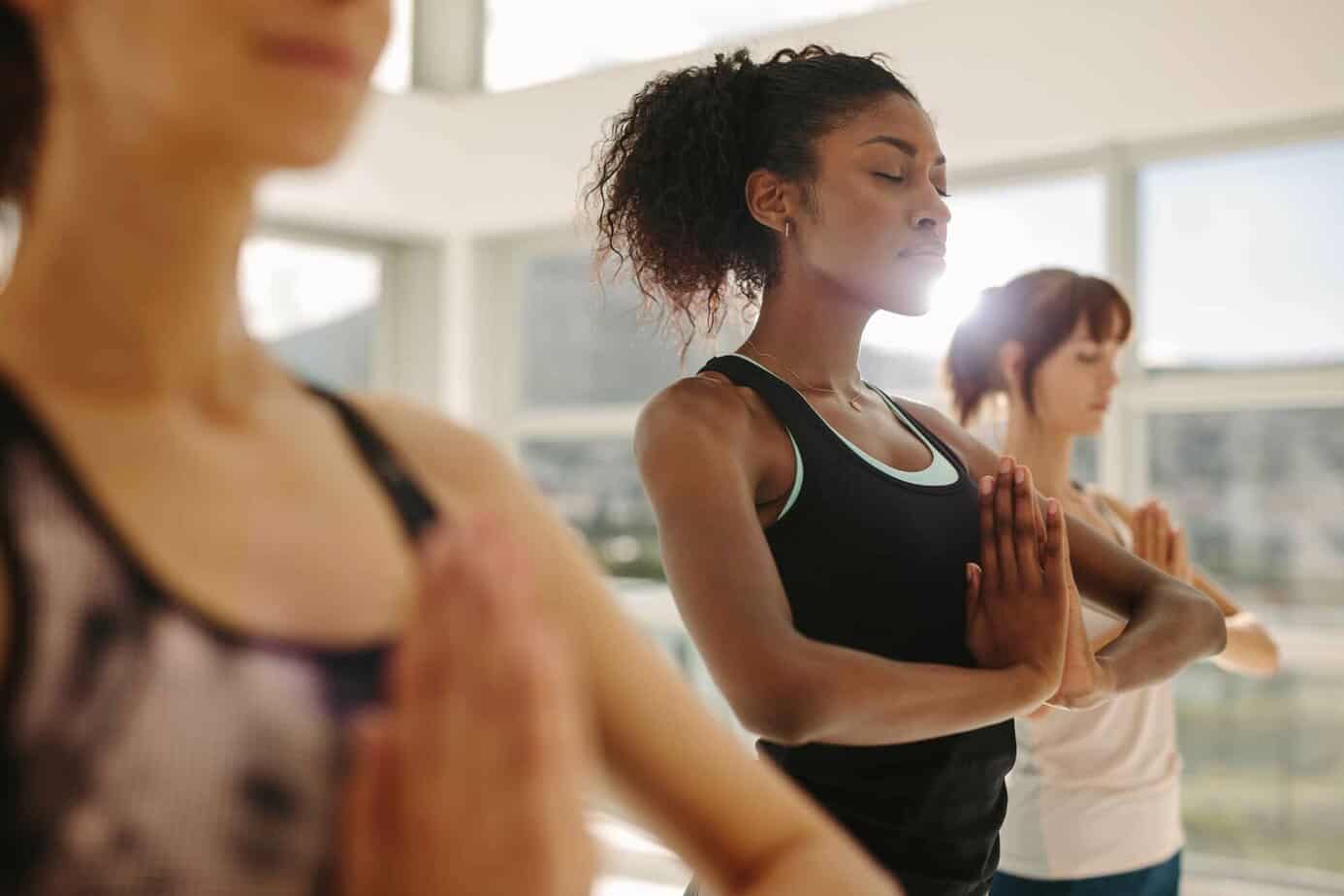Some people have their doubts when they hear that yoga can heal the mind, body, and spirit. Skeptics might assume that yoga simply improves flexibility, but therapeutic activity provides many other physical and mental health benefits. The combination of movement and breathing techniques makes yoga especially valuable for those struggling with addiction—a disease that interrupts the connection between the brain and the body.
How is Yoga Used in Addiction Treatment?
Yoga is a group of physical, mental, and spiritual practices that aim to control and still the mind. Over the years, yoga has been increasingly recognized as an effective complementary tool in addiction treatment plans. The popular wellness practice offers numerous health benefits, helping to balance parts of the brain and body impacted by drug abuse.
Yoga can channel energy inwards, thus enabling individuals to gain self-confidence by taking responsibility for their feelings and actions, allowing them better control over cravings.
While yoga is advantageous in combating substance use disorders, it’s most effective when combined with traditional therapy or treatment methods.
What Are Different Forms of Yoga?
There are various styles of yoga, from vigorous to gentle, which means you can find what works for you. Anybody can practice yoga regardless of their fitness level and you can take it anywhere with you. Whether you are leaving treatment or someone in early recovery, you can practice yoga from the comfort of your home by following video tutorials or even going to a local yoga studio.
Below are some of the most common forms of yoga:
- Hatha – Focuses on physical postures (asanas) and breath control (pranayama) to promote physical and mental well-being. It aims to balance the body and mind through a combination of physical exercises and relaxation techniques.
- Hot yoga – This form is done in a heated room typically maintained at temperatures ranging from 95 to 105 degrees Fahrenheit with high humidity. The heat is believed to ease tension, cleanse the body through sweating, and intensify the physical and mental aspects of the exercise.
- Vinyasa – Dynamic and flowing style of yoga that synchronizes breath with movement, creating a continuous and graceful sequence of poses.
- Ashtanga – For those who think yoga is too calm for them, ashtanga is the more vigorous style that incorporates set sequences or series of postures where the breath is linked with movement.
- Restorative – Restful practice is all about slowing down and opening your body through passive stretching for extended periods. Participants use props like blankets and bolsters, to support the body in complete comfort.
The Benefits of Yoga in Addiction Recovery
Here are some of the many ways that yoga can be beneficial for your overall health and lifestyle:
1. Promotes Physical Health
One of the goals of recovery is to restore physical damage done to the body during active addiction. For this reason, many treatment programs encourage clients to practice healthy eating habits as well as engage in physical activity. Yoga can be an ideal workout because the different poses challenge the body without being overly strenuous, allowing different age groups to reap the exercise’s benefits. Because some types of yoga are practiced at a relaxed pace, it improves oxygen and blood flow to the primary organs of the body, including the heart. This can even lower a person’s risk of stroke, heart disease, and cancer. Over time, the range of movements incorporated into yoga can also help loosen muscles, making a person physically stronger. Other physical health advantages include increased flexibility and endurance.
2. Improves Mental Health
Yoga fosters mindfulness, teaching a person to slow down, relax, and focus on the present rather than contemplate the pain of the past or the uncertainty of the future. It nurtures a sense of peace by lowering blood pressure, heart rate, and the production of the stress hormone cortisol. Poor mental health is at the root of addiction for many, and people in recovery who encounter stress triggers are more likely to use again in order to cope. Therefore, yoga’s stress-relieving properties can be especially valuable for those who suffer from addiction and mental health conditions like anxiety and depression. The meditation and breathing exercises involved in yoga can help these groups process difficult emotions such as sadness, anger, and guilt and feel more in control of themselves. A specific practice called trauma-informed yoga similarly encourages mental wellness in those who suffer from PTSD.
3. Reduces Chronic Pain
Many people in recovery who struggle with prescription drug addiction started using in order to treat chronic pain. Because yoga utilizes different parts of the body that are not typically targeted such as the hips and pelvis, it can prevent chronic pain and arthritis by promoting blood and oxygen flow to these areas. For example, handstand poses stimulate blood flow from the pelvis and legs to the heart and lungs. For those in addiction recovery, yoga, acupuncture, and other natural practices reduce the risk of relapse and are safer alternatives to painkillers.
4. Encourages Healthy Sleeping Habits
Rest is a critical part of recovery. However, medications prescribed to treat insomnia often have unwanted side effects, including mood swings and confusion. Those who have overcome addiction to drugs that combat restlessness, such as benzodiazepines and barbiturates, can especially benefit from yoga. The breathing exercises that accompany the movement of the body can release tension and improve sleep naturally.
5. Strengthens Self-Esteem
Yoga is a physical activity, and those who practice it feel proud knowing that they are actively participating in their recovery. Incorporating physical activity into a routine makes people feel more in control, fostering self-confidence and positivity. Additionally, many people who experience yoga as part of an addiction treatment program are venturing outside of their comfort zone. People in recovery who may have used drugs or alcohol to manage their stress can therefore learn how to cope with discomfort through complementary therapies like yoga. Trying new activities can also help people become more well-rounded and give them the opportunity to explore their likes and dislikes, understanding themselves better in the process.
For people in addiction recovery, yoga can be a rewarding therapeutic activity, especially when it is practiced as part of a comprehensive treatment plan. Though people struggling with addiction should not rely solely on yoga for treatment purposes, it can help them relax and feel more at peace with themselves as they navigate early recovery. By cultivating physical, mental, and spiritual balance, yoga encourages total well-being and can have a rejuvenating effect on those looking to create a healthier future for themselves.
If you or a loved one is struggling with addiction, Mountainside can help.
Click here or call (888) 833-4676 to speak with one of our addiction treatment experts.

 By
By 






